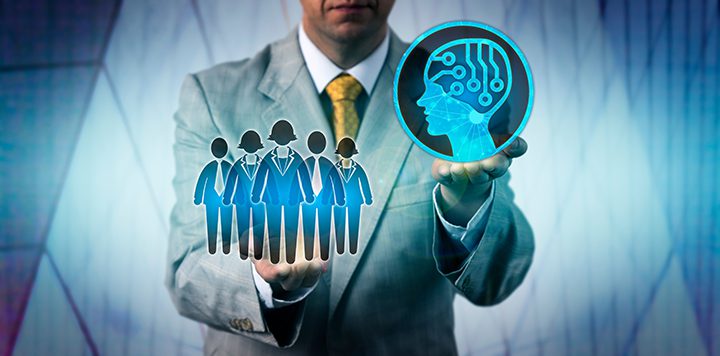
One of the biggest arguments against the development of artificial intelligence — if you disregard the perpetual fear that it will gain sentience and destroy the human race — is the worry that these systems will steal our jobs. We’ve already seen some mundane or tedious tasks get taken over by robotics or automation, so what’s to stop them from putting us all out of work?
The one bit of light at the end of the tunnel is that there are plenty of jobs out there that rely on purely human qualities, such as creativity or empathy. These are things a computer program can’t duplicate — or can it? Let’s take a look at some of these AI-proof jobs to see if your career is as safe as you think.
1. Human Resources Managers
How many of us have lied on our resumes at least once to get a job? There is so much “human” in the HR department that it seems AI-proof. You need a human manager to help tell the difference between the candidates that look good on paper and those that are the right fit for the job. Empathy and compassion are also necessary to help resolve disputes between employees, right?
Scientists have been working on ways to help AI understand human emotion since the mid-1990s. By 2009, Affectiva — a multimodal emotional AI — could identify and recognize human emotion with 90% accuracy. While there are currently no plans to replace HR managers with AI systems, this career path may not be as safe as previously thought.
2. Writers
Writers are a unique breed that spends days on end rearranging 26 characters to build words. Whether the end goal is to inform or entertain, writing requires a lot of creativity, which we believe to be exclusive to humans.
As it turns out, creativity is not just a human trait. Scientists worldwide have trained AI systems to write poetry, stories and screenplays with varying degrees of success. There is some light at the end of the tunnel, though — at least for writers in the United States. The U.S. Copyright Office ruled in 2022 that only a human being can create copyrighted works.
3. Teachers
Teachers are among the most underappreciated — and underpaid — individuals globally. They put their heart and soul into shaping the next generation and deserve more credit for all the incredible work they do. AI systems may have access to the breadth of human knowledge, thanks to an internet connection, but there is a big difference between knowledge and wisdom. An AI system can teach, but it takes a teacher to help these kids learn.
The problem that we’re running into now is a teacher shortage, and that is where AI might become essential. It may never fully replace the need for skilled teachers, but as more people leave the field for various reasons, they may become necessary.
4. Athletes
No matter what sport you enjoy, there’s nothing quite like watching a professional athlete at the top of their game. These skills take months to learn and years to master, and athletes at their peak are the perfect example of what humans can do.
There is very little chance that an AI system will replace a skilled athlete, but that could change in the future. Many sports, such as football or rugby, often leave athletes injured or facing long-term health issues. Robotic athletes may replace humans if it reaches a point where the need to stay healthy outweighs the desire to play.
Unless engineers can create robots that can mimic human movements, that may mark the end of professional sports as we know it. No one wants to watch a robot run a football from one end of the field to the other.
5. Lawyers
AI could potentially add up to $13 trillion to the global economy by 2030, which is why so many people are worried that their jobs could be at risk. Lawyers might have a bad rep, but they are an essential part of the criminal justice system as it currently stands. Practicing law requires a lot of memorization, which an AI system could excel at.
Unfortunately for these AI systems, there is more to being a lawyer than understanding the letter of the law. Attorneys must understand the spirit of the law, as well. Artificial intelligence isn’t designed to make those sorts of subjective judgments — at least not yet. If a more human AI system emerges capable of mimicking behavior or even becoming sentient in its own right, lawyers might find themselves out of a job.
Is Your Career AI-Proof?
This isn’t an exhaustive list of careers by any means. We could very well be entering the golden age of AI, where nearly every job ends up replaced by an artificial intelligence system, but we’re not quite there yet. Don’t rely on your job description alone to ensure your career is AI-proof. It may be true now, but there’s no guarantee it will remain that way forever.
